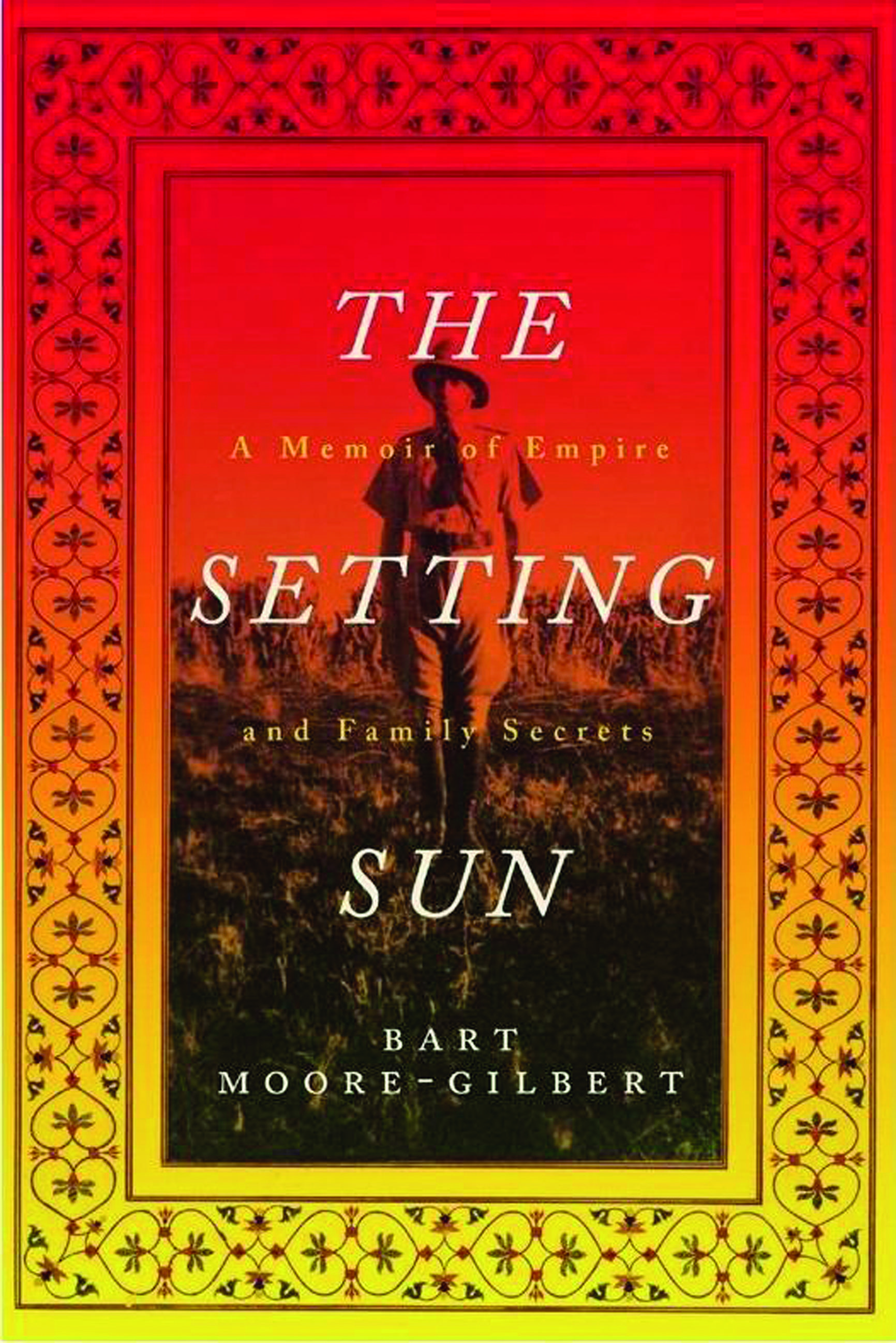The Setting Sun: A Memoir of Empire and Family Secrets
William ARMSTRONG - william.armstrong@hdn.com.tr
 ‘The Setting Sun: A Memoir of Empire and Family Secrets’ by Bart Moore-Gilbert (Verso, 288 pages, £15)
‘The Setting Sun: A Memoir of Empire and Family Secrets’ by Bart Moore-Gilbert (Verso, 288 pages, £15) Bart Moore-Gilbert was about to head to the pub one Friday afternoon in 2008 when he received an email out of the blue from an Indian researcher called Professor Bhosle. Bhosle was seeking information about Moore-Gilbert’s father, Bill, a former colonial official in the Indian Police, who led the suppression of an anti-British revolt in the years before independence in 1947. Bill had died in a plane accident when his son was still a child growing up in Tanzania, and the author - now a professor of postcolonial literature at the University of London - knew little of his time serving in India, let alone his role in any colonial counterinsurgency.
Bart Moore-Gilbert was about to head to the pub one Friday afternoon in 2008 when he received an email out of the blue from an Indian researcher called Professor Bhosle. Bhosle was seeking information about Moore-Gilbert’s father, Bill, a former colonial official in the Indian Police, who led the suppression of an anti-British revolt in the years before independence in 1947. Bill had died in a plane accident when his son was still a child growing up in Tanzania, and the author - now a professor of postcolonial literature at the University of London - knew little of his time serving in India, let alone his role in any colonial counterinsurgency. The elder Moore-Gilbert was assigned to oversee the crushing of a “parallel government” that had emerged in the Satara district of Maharashtra state, an area the size of Wales. Such rebellions were appearing all over the subcontinent during this period of the Quit India civil disobedience movement, and the British authorities waged a sometimes brutal campaign to stamp them out. The strongest case against Moore-Gilbert appears in a book written by Dr. A B Shinde, which describes how the counterinsurgency forces “lost self-control and perpetuated atrocities on the people”:
Moore-Gilbert, the [deputy superintendent of police] for Satara, got wide notoriety for his ruthlessness with which he carried out these raids … [Villagers] were rounded up and herded together like cattle in the temple: they were deprived of their clothes and ruthlessly beaten up … Cow dung and mud were thrust in the mouths of some while others were made to lie prostrate on the ground and nearly frightened out of their lives by holding bayonets to their throats.
The younger Moore-Gilbert feels physically sick as he reads these lines. He has always considered imperialism “essentially indefensible,” and is shocked by the “repulsive interloper amongst my memories … Can the father I so loved and respected as a child really have been capable of the excesses Shinde describes?”
The question nags away at him and he eventually decides to head to India to find out for himself. The result is a kind of non-fiction detective story, with Moore-Gilbert doggedly pursuing every lead like a postcolonial Sherlock Holmes. His Watson comes in the form of the various convincingly-drawn local characters who assist him as he follows the trail. He vividly describes zig zagging around Maharashtra by train, bus and rickshaw, leafing through archives and libraries, and contending with India’s formidable bureaucracy as he tries to put together the pieces. The vividness of his descriptions, along with the convincing emotional tale he tells, leavens a potentially rather dull story of schlepping through dingy administrative and academic files. The plucky Moore-Gilbert finds himself both looking for the truth and trying to uncover evidence for the defense, and the narrative of this pursuit is interspersed with short passages describing his memories of growing up in Africa with his father.
Along the way, he is able to find other voices to shed light on his father’s activities in India, and while Dr. Shinde’s account seems conclusive the picture turns out to be rather more nuanced. The author finds aging former police officers who served alongside Bill and even manages to reach a village that was at the center of the insurgency, where some surviving rebels remember his father and give a first-hand account of what went on. It isn’t a spoiler to reveal that no real “eureka” moment finally comes, but the book's gradual revelation of deeper, more ambivalent realities is satisfying in its own way. A crucial, though understated, moment comes towards the end, when Moore-Gilbert is forced to flee a gang of aggressive young miscreants hurling stones. He responds badly, writing that “some perverse instinct made me run at the boys. Attack as the best form of defence … I just wanted them punished.” Reflecting later, he’s troubled that such instincts could stir within him and wonders whether “circumstances sometimes goaded Bill into the same animal reflex of rage.”
That episode is a good illustration of the book’s emotional sophistication. As a disclaimer, I should admit that Moore-Gilbert was a teacher of mine at university six years ago and was perhaps my favorite professor. I'm happy to report that this book is a very rewarding read - genuinely moving and historically illuminating.










